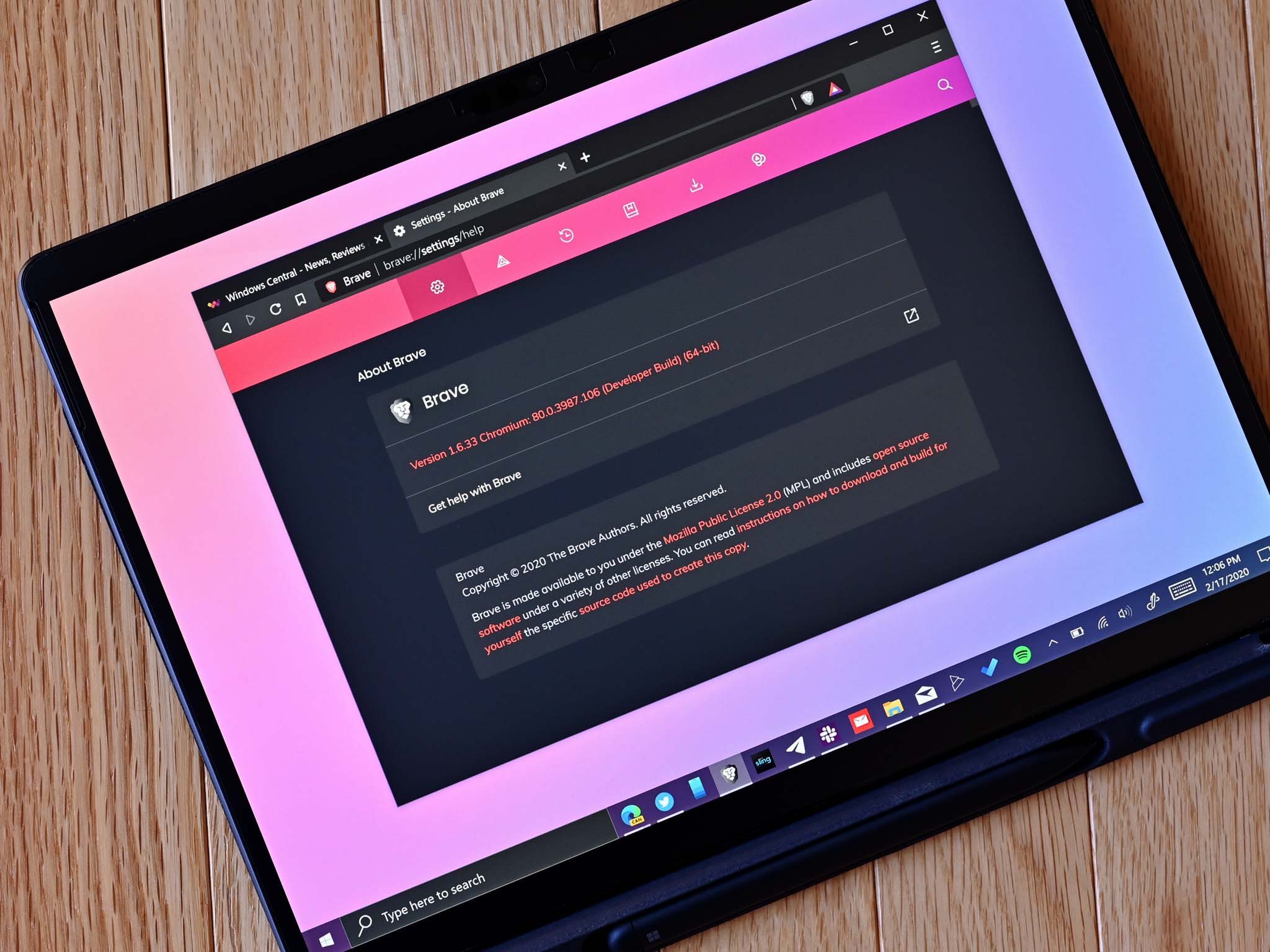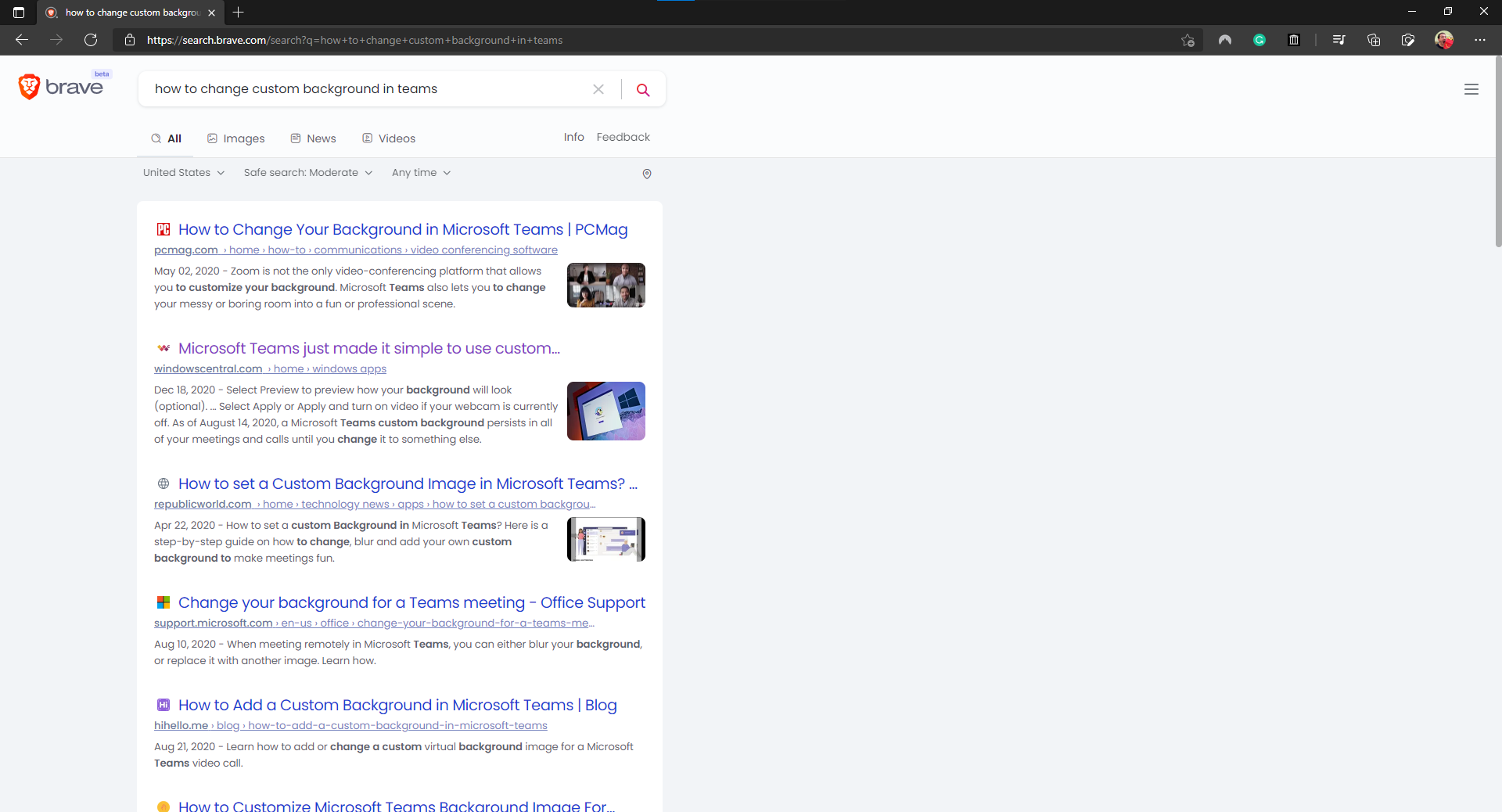Brave Search is here to battle Google while preserving privacy
Brave continues its focus on web privacy with the launch of Brave Search in beta.

What you need to know
- Brave announced a privacy-centered search engine called Brave Search.
- The new search engine is available in beta on all Brave browsers and through search.brave.com.
- Brave search focuses on privacy and does not track people's clicks or searches.
Brave recently announced a new search engine that aims to protect your privacy. The new tool is called Brave Search. It's available in beta on all versions of the Brave browser, including desktop, Android, and iOS. You can also use it through other browsers by going to search.brave.com. Brave announced the new search engine in a recent post.
The search engine was only announced in March after Brave acquired the search engine Tailcat. Brave Search will be the default search engine for the Brave browser later this year, which should significantly boost how many people use it. According to Brave, the browser has 32 million monthly active users.
Brave highlights seven principles that Brave Search follows:
- Privacy: no tracking or profiling of users.
- User-first: the user comes first, not the advertising and data industries.
- Independence: Brave has its own search index for answering common queries privately without reliance on other providers.
- Choice: soon, options for ad-free paid search and ad-supported search.
- Transparency: no secret methods or algorithms to bias results, and soon, community-curated open ranking models to ensure diversity and prevent algorithmic biases and outright censorship.
- Seamlessness: best-in-class integration between the browser and search without compromising privacy, from personalization to instant results as the user types.
- Openness: Brave Search will soon be available to power other search engines.
Brave Search is built on an independent index, but it's being built up, so some results will use third parties. For example, searching for images will utilize Bing. Brave explains that this still won't result in any tracking.

"Brave Search includes anonymized contributions from the community to improve and refine results," explains Brave. "However, there are types of queries, as well as certain areas such as image search, for which our results are not relevant enough yet, and in those cases we are using APIs until we are able to expand our index."
Right now, Brave Search doesn't show any ads, but there will be ad-free paid search and ad-supported free search in the future.
Get the Windows Central Newsletter
All the latest news, reviews, and guides for Windows and Xbox diehards.

Sean Endicott is a tech journalist at Windows Central, specializing in Windows, Microsoft software, AI, and PCs. He's covered major launches, from Windows 10 and 11 to the rise of AI tools like ChatGPT. Sean's journey began with the Lumia 740, leading to strong ties with app developers. Outside writing, he coaches American football, utilizing Microsoft services to manage his team. He studied broadcast journalism at Nottingham Trent University and is active on X @SeanEndicott_ and Threads @sean_endicott_.
